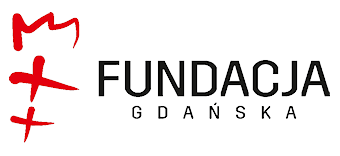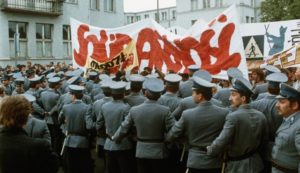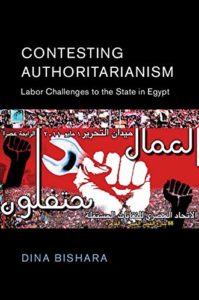
European Solidarity Center
The struggle for freedom against tyranny in Poland in 1989 was defined by a single word: solidarity. Workers and union leaders, teachers and students, church leaders and intellectuals united in a common cause that inspired the world, helped lead to the collapse of the Soviet Union, and set the nation on a course toward democracy, Marc Santora writes for The New York Times.
 “The last 30 years have been the best years in Poland in the last 300 years,” said Jacek Bendykowski, the president of the Gdansk Foundation and a member of the Young Poland Movement during the fight against Communism.
“The last 30 years have been the best years in Poland in the last 300 years,” said Jacek Bendykowski, the president of the Gdansk Foundation and a member of the Young Poland Movement during the fight against Communism.
The country’s liberal opposition argues that the 1989 vote was a milestone event in Poland’s transition into a European democracy. In that election, communist authorities made a portion of parliamentary seats available to candidates from the Solidarity movement that had opposed the regime during the 1980s. …But leaders from Poland’s right-wing Law and Justice government stress that the 1989 elections were flawed as they stemmed from a deal that allowed the communists to preserve some influence under democracy.
“In Poland, there is no more important symbol of democracy than Solidarity,” said Basil Kerski, director for eight years of the European Solidarity Center in Gdansk. “The real battle for history is to control the symbols of that history.”
The center was established “to strengthen democratic culture,” he said. “And that means not only supporting the party in power.”

Credit: Chatham House
On Tuesday, Poland marks three decades since its first elections after Communism. But that anniversary is best defined by another word: division. Today Poland is split between supporters of the nationalist, autocratic model of the ruling party, and those favoring the ideals of liberal democracy embodied in the European Union. Elections later this year could decide which path the country pursues.
 Thirty years ago on June 4, Poland conducted its first semi-free elections since the country fell under communist rule and Soviet domination after World War II. Freedom House’s Arch Puddington discusses American labor’s role in the struggle for democracy in Poland and elsewhere with Eric Chenoweth, co-director of the Institute for Democracy in Eastern Europe.
Thirty years ago on June 4, Poland conducted its first semi-free elections since the country fell under communist rule and Soviet domination after World War II. Freedom House’s Arch Puddington discusses American labor’s role in the struggle for democracy in Poland and elsewhere with Eric Chenoweth, co-director of the Institute for Democracy in Eastern Europe.
There is a growing understanding that trade unions are not historical anachronisms but essential institutions both for defending workers from economic exploitation and also for protecting basic democratic interests and representation, Chenoweth contends:
We see a revived interest in organizing trade unions here in the United States and Europe. And there are certainly many countries where a revival of international solidarity and direct support for trade unions could bring democratic change, from Hungary to Zimbabwe. But we need to have a genuine revival of trade unionism here and also a realignment back from the abstract “civil society” concept of “democracy promotion” to a more concrete support for mass-based worker and political organizations. It is such organizations and movements that can both bring about and institutionalize democratic change.







